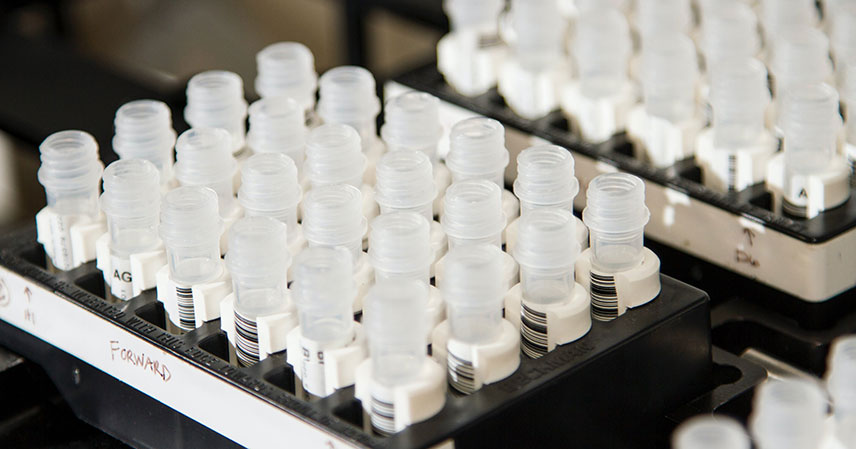Recent advancements from Boston Children’s Hospital are significant. They partnered with Broad Clinical Labs and Roche Sequencing Solutions. Together, they achieved a major milestone. Rapid genomic sequencing and interpretation are now possible in mere hours. This remarkable feat set a Guinness World Record. It is for the fastest human whole genome sequencing. More importantly, it represents a profound clinical development. This breakthrough promises to expedite precise treatments. It will greatly benefit critically ill babies in the NICU.
This groundbreaking collaboration underscores the power of modern medical science. It highlights a critical step forward in diagnostic capabilities. The implications for patient care are truly transformative. We are entering a new phase of rapid, informed medical intervention.
The Breakthrough: Speeding Up Diagnostics ⚡
This achievement dramatically compresses the timeline for genetic diagnosis. What once took days, or even weeks, can now be completed swiftly. Researchers at Boston Children’s pushed technological boundaries. They streamlined every step of the sequencing and interpretation process. This efficiency is a game-changer for critical care.
The previous record was 18 hours. This new record shatters that benchmark. Results were achieved in a mere 13 hours. This speed is not just a technical triumph. It represents a significant leap in diagnostic capability. Clinicians can now access vital genetic information much faster. This rapid turnaround is crucial when every minute counts.
The success stems from a powerful collaboration. A leading children’s hospital worked with a renowned research institute. They also partnered with a major sequencing solutions provider. They integrated advanced sequencing platforms. These were combined with sophisticated computational analysis. This synergy enabled rapid processing of vast genetic data. It also ensured accurate, timely interpretation of findings.
This streamlined process minimizes delays. It maximizes the window for effective intervention. Such speed was previously unimaginable in clinical settings. Now, it is a proven reality for complex cases. This sets a new standard for diagnostic efficiency.
A Game Changer for Critically Ill Infants 👶
The most immediate impact of this rapid sequencing is in the Neonatal Intensive Care Unit (NICU). Critically ill newborns often present with complex, undiagnosed conditions. Many of these conditions have a genetic basis. Identifying these genetic causes quickly can be life-saving. Every moment matters for these tiny patients.
For these fragile infants, time is incredibly precious. Delays in diagnosis can lead to prolonged suffering. It can cause irreversible damage or even fatality. Traditional genetic testing often involves long waiting periods. This waiting can delay targeted therapies. Rapid sequencing changes this paradigm entirely. It offers a new path forward.
With results available in hours, clinicians make informed decisions faster. They can tailor treatments precisely. This aligns with a baby’s unique genetic makeup. It might involve adjusting medication dosages. Or, it could mean initiating specific interventions sooner. Such personalized care significantly improves outcomes. It helps infants with rare genetic disorders. This offers a new beacon of hope for families. The technology could transform neonatal critical care.
This precision medicine approach minimizes trial-and-error treatments. It reduces exposure to potentially ineffective therapies. This directly benefits the most vulnerable patients. Their tiny bodies are spared unnecessary burdens. This makes the diagnostic journey much safer and more efficient.
Broader Implications and Future Horizons 🔭
While the initial focus is on the NICU, this technology has wider implications. It holds immense potential for other critical care settings. Patients in emergency rooms could benefit. Intensive care units of all ages might see its use. Rapid diagnosis of infectious diseases could become commonplace. Drug sensitivities could also be identified quickly.
The ability to quickly identify genetic predispositions is revolutionary. Specific mutations could also be pinpointed faster. This moves us closer to true personalized medicine. A patient’s genetic profile could guide every treatment decision. This could lead to more effective therapies. It might also reduce adverse drug reactions. However, widespread implementation faces hurdles.
Challenges include the cost of sequencing. While decreasing, it remains substantial. Ensuring equitable access to this advanced technology is paramount. Ethical considerations must also be addressed. These include genetic data privacy and informed consent. Despite these challenges, this breakthrough is a major step. It paves the way for a future where rapid genetic information is standard. It will be a key tool in critical medical decisions. It promises a new era of proactive, individualized healthcare.
Further research is essential. It will refine the technology and expand its reach. Regulatory frameworks will also need to adapt. This ensures safe and responsible use. The journey towards fully integrated genomic medicine continues. This milestone represents a powerful leap forward.
Key Insights from This Milestone 💡
- This achievement sets a new Guinness World Record for human whole genome sequencing.
- It enables rapid, precise genetic diagnoses for critically ill infants in the NICU.
- The breakthrough signifies a major advance towards widespread personalized medicine.
- It highlights the critical importance of inter-institutional collaboration in scientific progress.
- Future efforts must address challenges like cost, accessibility, and ethical considerations.
- This technology promises to significantly improve patient outcomes in critical care.
The collaborative efforts leading to this rapid genomic sequencing breakthrough represent a monumental stride in medical science. It demonstrates that what once seemed futuristic is now becoming a clinical reality. We must approach such powerful technology with responsibility and caution. Yet, the potential to provide faster, more precise care for the most vulnerable among us is truly inspiring. This development offers a glimpse into a future where genetic insights are integrated seamlessly into critical medical decisions, ultimately saving lives and improving health outcomes globally.
Source: New world record set for fastest human whole genome sequencing



